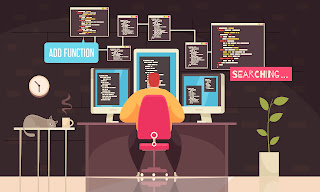Scaling Python Software: Techniques for Handling Large Datasets and High Traffic

In today's data-driven world, handling large datasets and high traffic is a common challenge for software developers. Python, with its rich ecosystem and powerful libraries, provides various techniques and tools to scale applications efficiently. In this article, we will explore techniques and best practices for scaling Python software to handle large datasets and high traffic effectively. Optimize Data Storage and Retrieval: Efficient data storage and retrieval are crucial when dealing with large datasets. Consider using a database system that is well-suited for your specific requirements. Python offers popular choices like PostgreSQL, MySQL, and MongoDB. Utilize indexing, query optimization, and caching mechanisms to enhance data retrieval performance. Additionally, explore techniques like data sharding and partitioning to distribute the data across multiple servers. Utilize Distributed Computing: Distributed computing allows for parallel processing and can significantly boost pe...


.jpg)